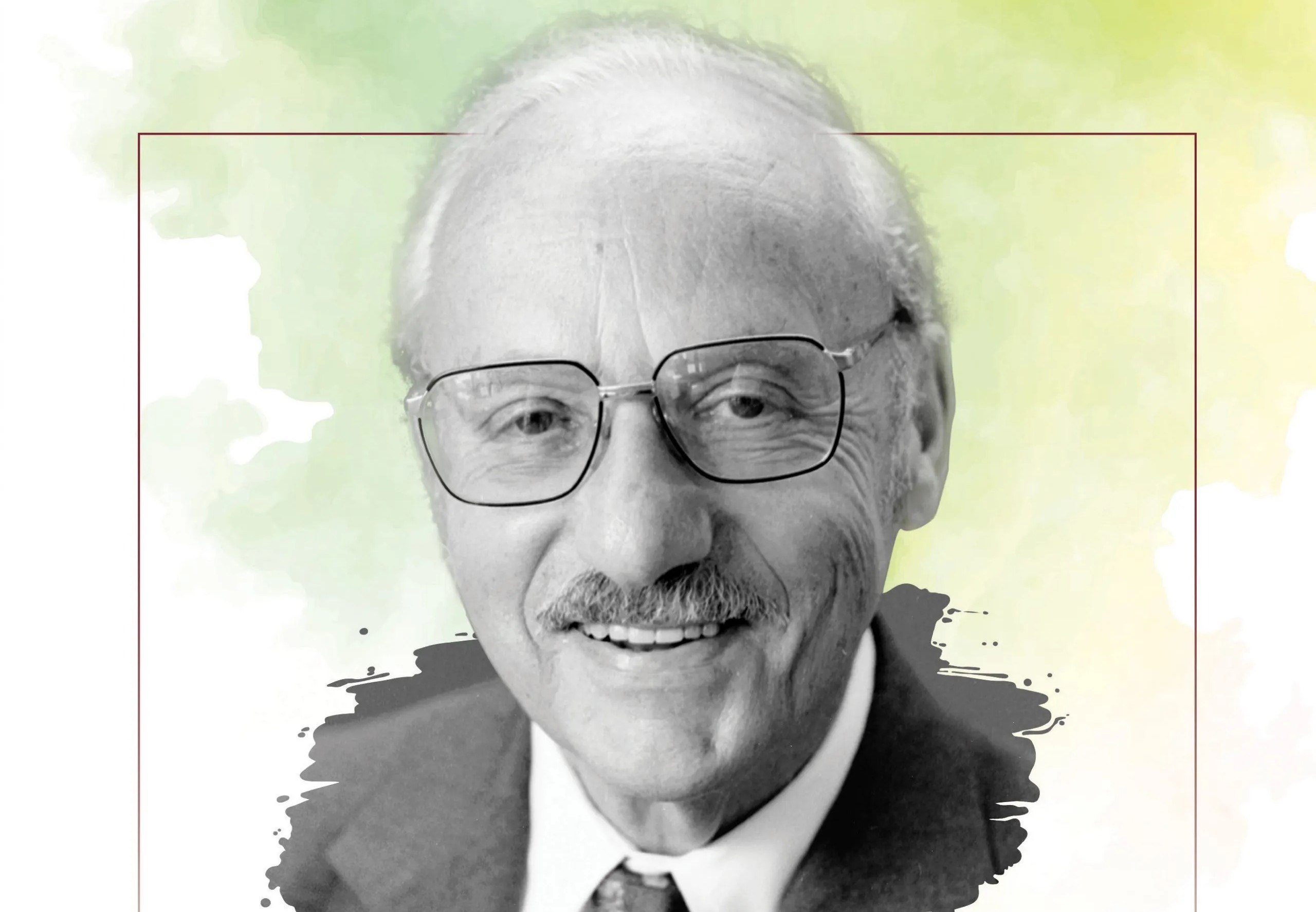
George Dantzig, the renowned mathematician, is a man whose life and work continue to fascinate people around the world. Born on November 8, 1914, in Portland, Oregon, Dantzig’s contributions to the field of mathematics are nothing short of extraordinary. He is best known for his revolutionary work in linear programming and his development of the simplex algorithm, which has revolutionized optimization and decision-making processes.
In this article, we will delve into the intriguing life and mind of George Dantzig and uncover 14 mind-blowing facts that shed light on his exceptional talent and achievements. From his groundbreaking contributions to the development of operations research to his incredible ability to solve complex mathematical problems, Dantzig’s story is one that will awe and inspire you.
Key Takeaways:
- George Dantzig, the “Father of Linear Programming,” solved unsolvable problems and revolutionized optimization, impacting industries and inspiring future mathematicians.
- Dantzig’s mathematical breakthroughs during World War II and beyond continue to shape business decisions and inspire problem solvers worldwide.
“The Father of Linear Programming”
George Dantzig, an American mathematician, is widely regarded as the pioneer and “Father of Linear Programming.” His groundbreaking work revolutionized the field of optimization and laid the foundation for various applications in business, engineering, and economics.
The Unsolvable Homework Problem
In 1939, Dantzig arrived late for a statistics class at the University of California, Berkeley. He quickly scribbled the two unsolved problems written on the blackboard, thinking they were assigned homework. Little did he know that these problems were not homework but unsolved statistical theorems.
The Challenge That Led to Success
George Dantzig managed to solve those two “homework problems” in a matter of days, not realizing their significance. His solution to what later became known as “Dantzig’s Simplex Algorithm” was a seminal moment in the world of optimization.
Mathematical Breakthrough
Dantzig’s Simplex Algorithm laid the foundation for the field of linear programming, allowing scientists and researchers to efficiently solve complex optimization problems, from resource allocation to production planning.
Influence on World War II
During World War II, George Dantzig’s mathematical skills were put to use in the war effort. He worked on solving logistics and supply chain problems for the United States’ military, optimizing the allocation of resources and improving efficiency.
Presidential Recognition
In 1975, George Dantzig was awarded the National Medal of Science by President Gerald Ford for his significant contributions to mathematics and operations research.
Dantzig’s Long Academic Career
George Dantzig spent more than four decades teaching and conducting research at Stanford University. He mentored numerous students who went on to become influential mathematicians and researchers themselves.
Recognition from Professional Societies
Dantzig was a Fellow of the American Academy of Arts and Sciences, the National Academy of Engineering, and the Institute for Operations Research and the Management Sciences (INFORMS), among other prestigious organizations.
Contributions Beyond Linear Programming
While best known for his work in linear programming, Dantzig made significant contributions to other areas of mathematics, including integer programming, nonlinear programming, and mathematical economics.
A Mind for Optimization
George Dantzig had an exceptional ability to see the world through the lens of optimization. He applied his mathematical expertise to diverse fields such as transportation planning, resource management, and even political decision-making processes.
Legacy in Operations Research
Dantzig’s pioneering work in optimization and operations research paved the way for advancements in decision science, supply chain management, and data analytics, shaping the modern landscape of business and industry.
Impact on Business World
George Dantzig’s mathematical models and algorithms continue to be implemented by businesses worldwide, enabling them to make informed decisions, streamline operations, and maximize efficiency.
Recognition Amongst Peers
George Dantzig received numerous accolades for his contributions to the field of mathematics, including the John von Neumann Theory Prize and the National Medal of Science.
Enduring Inspiration
The life and work of George Dantzig, the “Father of Linear Programming,” continues to inspire future generations of mathematicians, researchers, and problem solvers, who strive to push the boundaries of optimization and create innovative solutions to complex challenges.
Conclusion
In conclusion, George Dantzig was an extraordinary mathematician who made significant contributions to the field of operations research and linear programming. His remarkable life and achievements continue to inspire and influence future generations of mathematicians and researchers.
From his humble beginnings as a college student solving a math problem he thought was homework, to his groundbreaking work in optimizing logistical operations during World War II, Dantzig’s story is a testament to the power of perseverance and the brilliance of the human mind.
Through his innovative methods and mathematical models, Dantzig revolutionized decision-making processes and paved the way for countless practical applications in various industries. His work not only improved efficiency and productivity, but also had far-reaching implications in transportation, manufacturing, and resource allocation.
Moreover, Dantzig’s legacy extends beyond his academic and professional achievements. He was known for his humility, kindness, and willingness to help others. He mentored numerous students and colleagues, leaving an indelible impact on their lives and careers.
All in all, George Dantzig’s life and work serve as an inspiration to us all, reminding us of the boundless potential of the human intellect and the profound impact one individual can make on the world.
FAQs
1. Who was George Dantzig?
George Dantzig was a renowned mathematician who is best known for his contributions to linear programming and operations research. He was born in 1914 in Portland, Oregon, and went on to receive his PhD in mathematics from the University of California, Berkeley.
2. What was George Dantzig’s biggest achievement?
George Dantzig’s biggest achievement was the development of the simplex algorithm, which revolutionized the field of linear programming. This algorithm provided a method for efficiently solving optimization problems with linear constraints.
3. How did George Dantzig discover the simplex algorithm?
Legend has it that George Dantzig accidentally stumbled upon the idea for the simplex algorithm when he mistakenly thought two linear programming problems were homework assignments. He managed to solve these problems and later realized the significance of his method.
4. What is linear programming?
Linear programming is a mathematical technique used to optimize the allocation of resources. It involves maximizing or minimizing a linear objective function, subject to a set of linear constraints.
5. How did George Dantzig impact the field of operations research?
George Dantzig’s work in linear programming and operations research had a profound impact on various industries. His methods and models provided valuable tools for optimizing logistical operations, improving efficiency, and making more informed decisions.
George Dantzig's remarkable life and groundbreaking work continue to inspire mathematicians, statisticians, and problem-solvers worldwide. If you're curious to learn more fascinating facts about mathematics, discover how CutList Optimizer revolutionizes material optimization, or explore the power of R for statistical computing, keep reading our captivating articles that delve into these subjects and more.
Was this page helpful?
Our commitment to delivering trustworthy and engaging content is at the heart of what we do. Each fact on our site is contributed by real users like you, bringing a wealth of diverse insights and information. To ensure the highest standards of accuracy and reliability, our dedicated editors meticulously review each submission. This process guarantees that the facts we share are not only fascinating but also credible. Trust in our commitment to quality and authenticity as you explore and learn with us.


